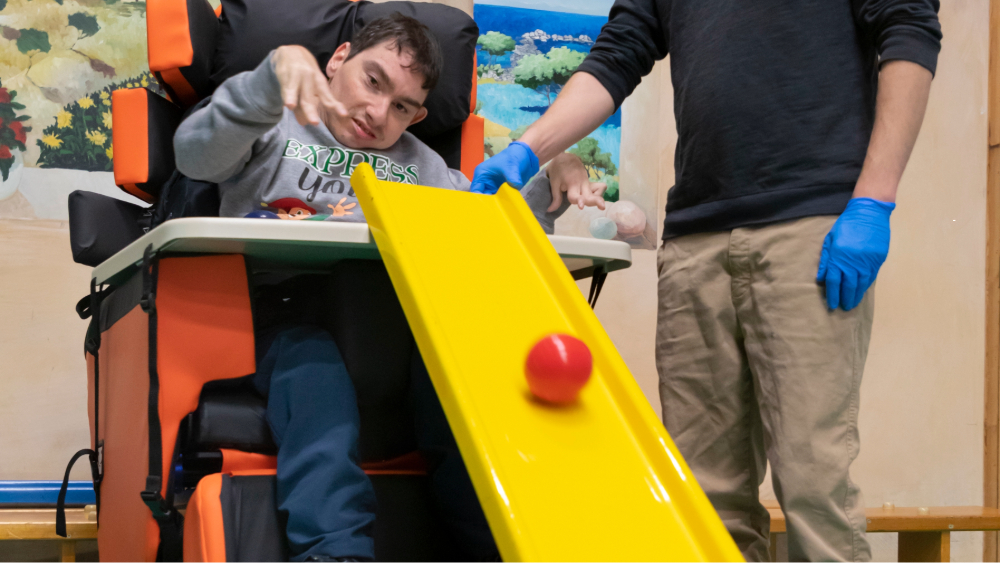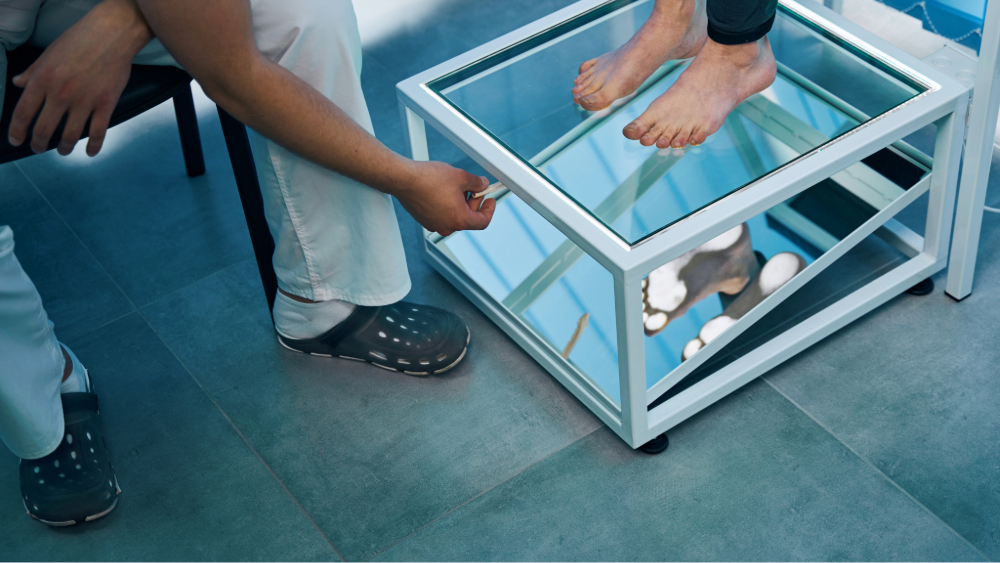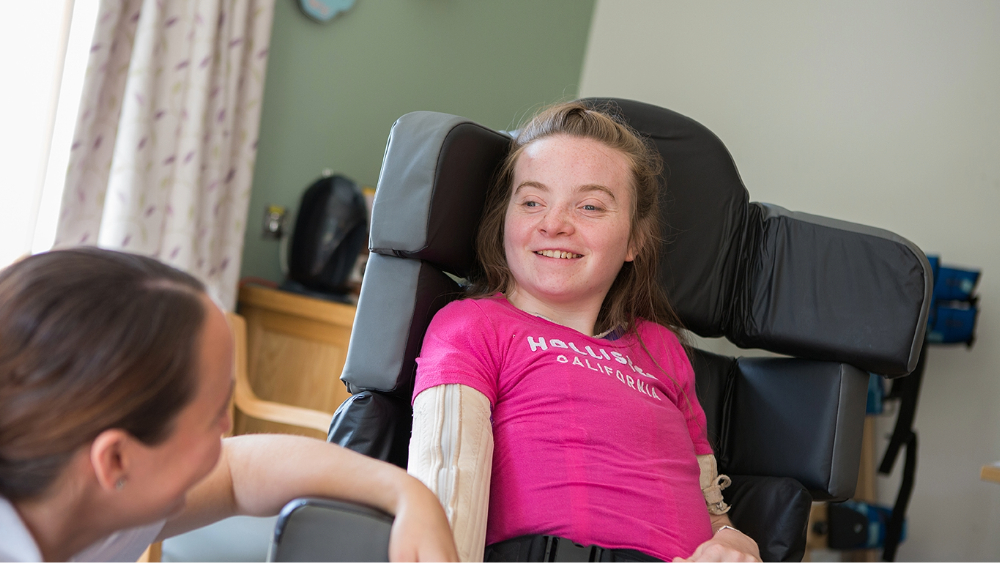As a Health & Social Care Professional, you understand the importance of optimum postural care for individuals with complex disabilities. It can significantly impact their lives, promoting their independence, comfort, and overall health and well-being. At CareFlex, we want to help you every step of the way; please keep reading for key hints and tips to support the individuals you work with in accessing specialist seating provision.
What is a Complex Disability?
Complex needs and physical health and well-being are intrinsically linked. Having complex disabilities often means a person experiences unique barriers in daily life, including access to health and social care. This may mean higher levels of support to communicate, develop new skills, and live more independently.1
Health inequalities are so significant that men with learning disabilities die 23 years sooner than men in the general population, and women with learning disabilities die, on average, 27 years sooner.2
1 in 10 disabled people in the UK have complex needs.1 Complex disability is different for every person; with the right support from the right services, they can lead fulfilling lives.
Complex disabilities encompass a range of conditions that can present from birth, following an injury, illness, or disease, or develop with age:
- Learning disabilities
- Mental illness
- Autism spectrum disorder
- Dementia
- Delirium
- Sensory impairments
What is Postural Care, and Why is it Important?
Postural care is the holistic use of any technique or intervention to minimise postural abnormality and enhance functional movement.3 It is an approach that aims to preserve and restore body shape for individuals with complex disabilities.
Posture is directly related to a person’s health, well-being, and quality of life. There are physical, psychological, and emotional effects of body shape distortion, with severe and life-threatening consequences.4 Individuals who lack the physical ability, cognitive awareness, communication skills, or sensory feedback to manage their posture will require a postural review to ascertain their risk of body shape distortion.
A True Holistic Approach
A holistic approach is imperative as it ensures personalised care – not just a narrow focus on the diagnosis but also the consideration of the person’s well-being.5
We must understand and appreciate the individual’s daily life and how the seating provision will integrate seamlessly. The ultimate objective is compliance – regardless of the intervention, we want individuals and their support network to follow care plans consistently to achieve our clinical goals.
Consider Capacity
Those who work with individuals with complex disabilities must know and follow the principles of the relevant legislation. This legislation is critical for protecting the welfare of those unable to make decisions for themselves.
The Mental Capacity Act 2005, in England and Wales, states that people must be supported as much as possible to make their own decisions before it is concluded that they cannot make that decision. If there is a lack of capacity and a specific decision is to be made on their behalf, then it must be in their best interest, and the least restrictive interventions must be employed first.
In Scotland, different legislation, such as the Adults with Incapacity Act 2000, is in place. Similarly, its overarching principle is to protect individuals who lack the capacity to make some or all decisions while supporting their support network in managing and safeguarding the individual’s welfare and finances.
Equality, Equality, Equality
The Equality Act 2010 is a significant piece of legislation that made it illegal to discriminate against someone based on disability. The act gives additional powers to providers to positively determine.
Reasonable adjustments can support someone to engage effectively with services and interventions and include:
- Ensuring safe and appropriate accessibility
- Utilising a familiar environment
- Enabling orientation and acclimatisation
- Allowing the individual’s support network to attend
- Providing longer appointment times
- Ensuring moving and handling equipment is available
- Adapting communication to cognitive ability
Elevate Communication
We must seek out key information about communication, which can be found in the individual’s Communication Passport, Traffic Light Hospital Assessment, or Health Action Plan.
A Communication Passport provides a practical, accessible, person-centred approach to passing on key information about people with complex communication difficulties who cannot easily speak for themselves across transitions. The Traffic Light Hospital Assessment was developed to provide essential information to hospital staff in a user-friendly format to promote improved continuity of care in the hospital from pre-admission to post-discharge. As part of an individual’s annual health check, GP practices are required to produce a Health Action Plan for individuals with a learning disability. It identifies health needs with a focus on key action points.
Top tips for effective communication include:
- Considering non-verbal cues such as facial expressions, gestures, sounds, or signs
- Listening to those who know the person well
- Recognising how someone communicates pain before conducting an objective assessment
Training and Support
We often depend on an individual’s support network (families, friends, caregivers, or professional carers) to support attendance at assessments, be involved in prescription, and implement care plans going forward. Training and support are crucial for safe, appropriate, competent, and confident seating provision. Remember, CareFlex can support all customers with education around specialist seating, from formal clinical training days to informal product training and even virtual events.
Conclusion
Considering these top hints and tips, we hope you will be empowered to promote access to optimum specialist seating regardless of an individual’s complex needs and the barriers they face with health inequalities. Ensure you collaborate with a trusted supplier, like CareFlex, to deliver the best possible solutions for those with complex disabilities. Please do not hesitate to contact us to discuss any aspect of postural care in sitting.
References
- Sense (2022) Complex disability Available from: sense.org.uk/information-and-advice/conditions/what-does-complex-disabilities-mean
- The Learning Disabilities Mortality Review (LeDeR) Programme (2020) Annual Report Available from: https://www.england.nhs.uk/learning-disabilities/improving-health/mortality-review/
- Farley R, Clark J, Davidson C, Evans G, MacLennan K, Michael S, Morrow M, Thorpe S (2003) What is the evidence for the effectiveness of postural management? International Journal of Therapy and Rehabilitation 10(10):449-455
- Public Health England (2018) Postural care and people with learning disabilities: guidance Available from: https://www.gov.uk/government/publications/postural-care-services-making-reasonable-adjustments/postural-care-and-people-with-learning-disabilities#fn:2
- The Health Foundation (2016) Person-centred care made simple, What everyone should know about person-centred care Available from: health.org.uk/sites/default/files/PersonCentredCareMadeSimple.pdf



